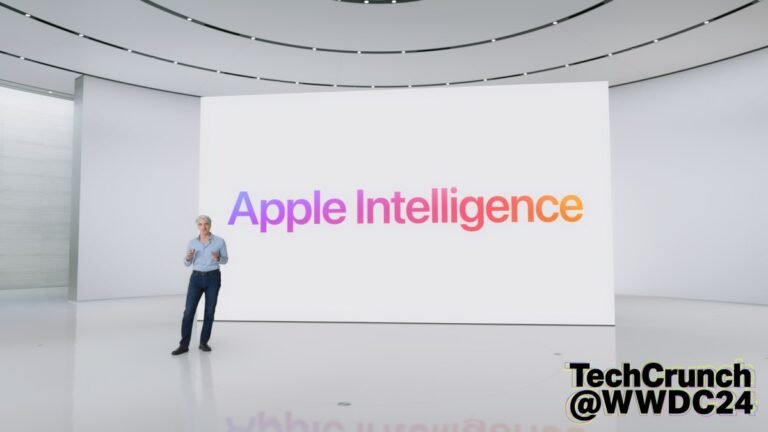
It’s something Apple is striving to answer with its own take on the category, Apple Intelligence, which was officially unveiled this week at WWDC 2024.
Apple Intelligence is a more bespoke approach to generative AI, built specifically with the company’s different operating systems at their foundation.
It’s a very Apple approach in the sense that it prioritizes a frictionless user experience above all.
The operating systems also feature a feedback mechanism into which users can report issues with the generative AI system.
This should function the same with all external models Apple partners with, including Google Gemini.
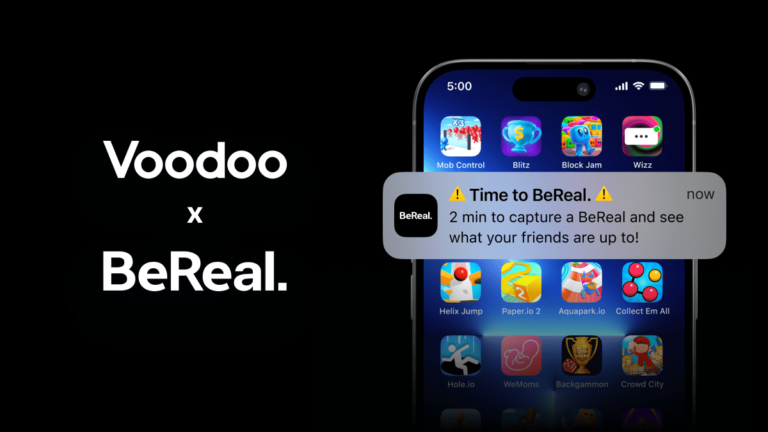
Voodoo, a French mobile apps and games publisher, has acquired BeReal for €500 million.
As part of the acquisition, BeReal co-founder and CEO Alexis Barreyat will leave the company after a transition period.
Aymeric Roffé, the CEO of Wizz, one of Voodoo’s social media apps, will take over as CEO of BeReal.
On BeReal, users receive a push notification each day prompting them to post they’re up within a two-minute window.
“Voodoo has a proven track record of driving significant growth in mobile apps,” said BeReal founder Alexis Barreyat, in the press release.
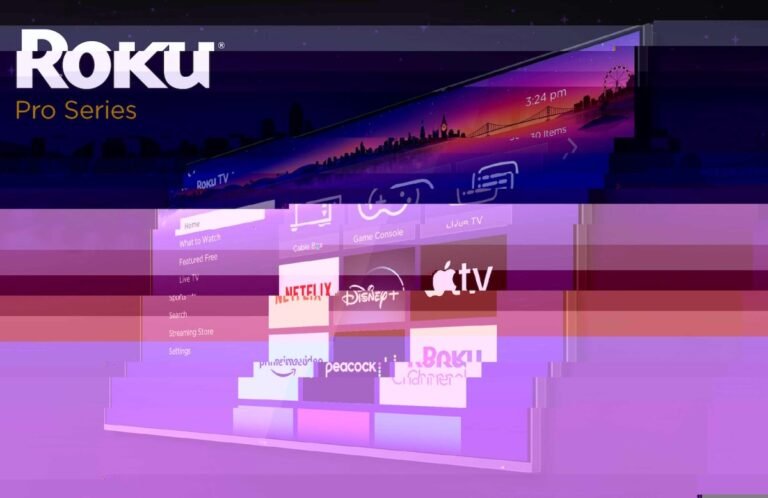
Streaming giant Roku has confirmed a second security incident in as many months, with hackers this time able to compromise more than half a million Roku user accounts.
In a statement Friday, the company said about 576,000 user accounts were accessed using a technique known as credential stuffing, where malicious hackers use usernames and passwords stolen from other data breaches and reuse the logins on other sites.
Roku said in fewer than 400 account breaches, the malicious hackers made fraudulent purchases of Roku hardware and streaming subscriptions using the payment data stored in those users’ accounts.
Two-factor authentication prevents credential stuffing attacks by adding an additional layer of security to online accounts.
By prompting a user to enter a time-sensitive code along with their username and password, malicious hackers cannot break into a user’s account with just a stolen password.

WhatsApp is testing Meta AI, its large language model-powered chatbot, with users in India and some other markets, signalling its intentions to tap the massive user base to scale its AI offerings.
The company recently began testing the AI chatbot, until now available in the U.S., with some users in India, many of them said.
India, home to more than 500 million WhatsApp users, is the instant messaging service’s largest market.
Meta unveiled Meta AI, its general-purpose assistant, in late September.
The AI chatbot is designed to answer user queries directly within chats as well as offer them the ability to generate photorealistic images from text prompts.

Switzerland-based Proton, the privacy-focused firm behind end-to-end encrypted (E2EE) webmail ProtonMail and other apps, has acquired Standard Notes, a note-taking app founded back in 2017.
By adding Standard Notes to its portfolio of apps, Proton will deepen its reach with an engaged community of pro-privacy users, layering on additional cross-selling opportunities as well as boosting the utility of its app ecosystem.
And while there is some usage overlap, a Proton spokesperson said that less than a quarter of Standard Notes users are already Proton users.
Proton said the Standard Notes app, which is available for both mobile and desktop, will remain “open source, freely available and fully supported”.
Commenting in a statement, Mo Bitar, founder and CEO of Standard Notes, talked up the sense of shared mission.
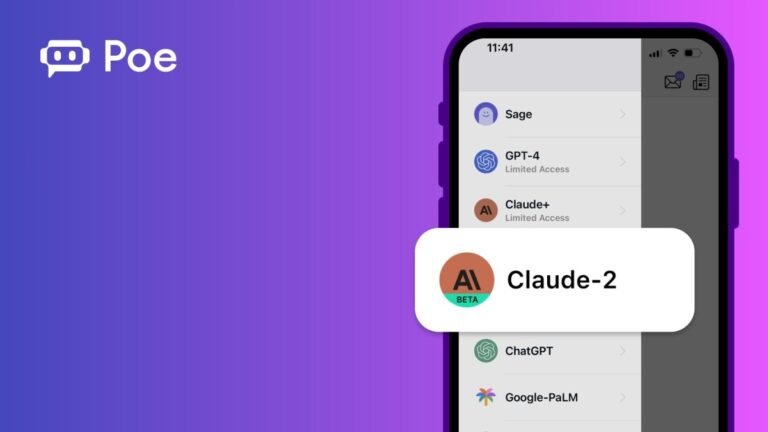
Bot creators now have a new way to make money with Poe, the Quora-owned AI chatbot platform.
The addition follows an earlier October 2023 of a revenue-sharing program that would give bot creators a cut of the earnings when their users subscribed to Poe’s premium product.
Today we’re introducing a new way for model developers and bot creators to generate revenue on @poe_platform: price per message!
The offering is currently available to U.S. bot creators only but will expand globally in the future.
Alongside the per-message revenue model, Poe also launched an enhanced analytics dashboard that displays average earnings for creators’ bots across paywalls, subscriptions, and messages.

Now, it appears Meta is using its Quest VR store to demonstrate how it thinks devices with app stores should approach online age verification.
Since it’s easy to lie about someone’s age when entering only a birthdate, Meta says it’ll require people who accidentally enter a wrong birthdate to verify with an ID or credit card.
Meta has previously told developers that, starting in March 2024, it will require them to identify their app’s intended age group (preteens, teens or adults).
It also announced the launch of its user age group APIs, which officially launched last month.
Meta first added parental supervision tools to its VR headset in 2022.

With the aim of identifying criminal suspects, U.S. police departments are increasingly relying on a controversial surveillance practice to demand large amounts of users’ data from tech companies.
So-called “reverse” searches allow law enforcement and federal agencies to force big tech companies, like Google, to turn over information from their vast stores of user data.
Reverse searches effectively cast a digital dragnet over a tech company’s store of user data to catch the information that police are looking for.
Microsoft, Snap, Uber and Yahoo (which owns TechCrunch) have all received reverse orders for user data.
Some companies choose not to store user data and others scramble the data so it can’t be accessed by anyone other than the user.

But one category in particular caught our attention as the DOJ spends quite a bit of time talking about “green bubbles” and “blue bubbles.”When an iPhone user sends a message to another iPhone user, by default that message is sent using Apple’s iMessage protocol.
If an iPhone user texts an Android user — and vice versa — iOS falls back to the older, less secure but universal SMS protocol.
“Apple makes third-party messaging apps on the iPhone worse generally and relative to Apple Messages, Apple’s own messaging app,” the DOJ wrote in its lawsuit.
At this point, you might think: wasn’t the RCS protocol supposed to level up SMS messaging and alleviate these pain points?
It feels a bit odd that the DOJ is front-loading its antitrust lawsuit against Apple with the much talked about “green bubbles” vs. “blue bubbles” debate as there are far more serious and substantive issues.
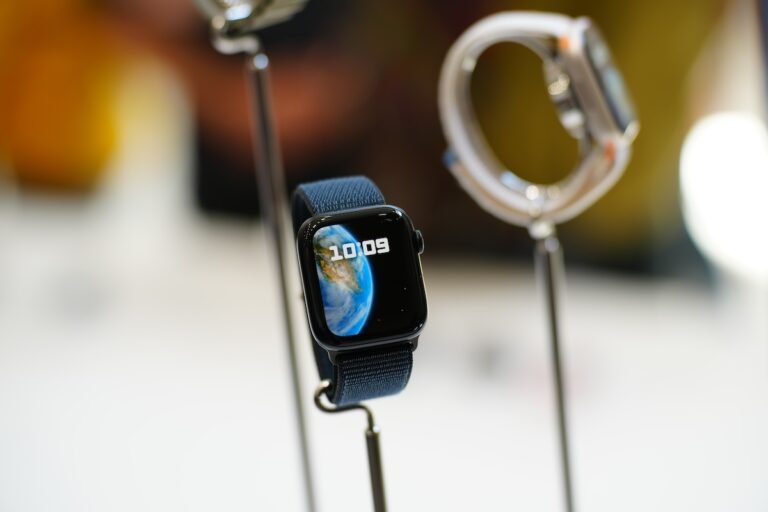
The Apple Watch gets some face time in the filing, as well.
The suit rightly notes that the Apple Watch is “only compatible with the iPhone” – a longstanding complaint among Android users interested in picking up what is far and away the market share leader.
Apple is not, however, alone in ensuring that certain functionality only operates as stated with first-party hardware, however.
The Apple Watch has historically been even more dominant in its respective category than the iPhone in the global market.
Should the DOJ’s suit force the company to open Apple Watch functionality, it would not only limit watch-based iPhone sales, it would also potentially open the device up to Android users, which, in turn, could have a positive impact on sales.













